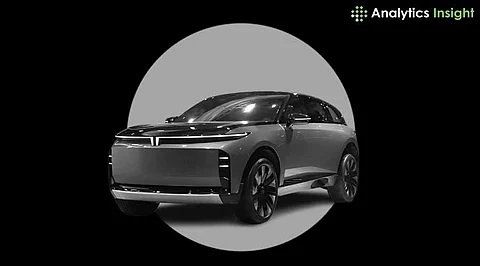

Is India on the brink of an EV revolution? Tata Motors is gearing up to disrupt the electric vehicle segment with its highly anticipated premium electric SUV Avinya. More than just another addition to Tata’s EV lineup, Avinya is built from the ground up on the advanced Gen 3 EV platform signaling a major leap toward next-generation electric mobility.
This isn’t merely an electric SUV, it's Tata’s answer to global players like Tesla. Expected to hit the roads around 2026 2027 with an estimated price tag of Rs 25 lakh, Avinya aims to offer a compelling alternative to the Tesla Model 3 blending innovation, luxury and affordability. But will it truly redefine what premium EVs mean for the Indian market? The stage is set and the competition is fierce. Only time will tell if Avinya can lead the charge.
While Tata’s previous electric models originated from ICE platforms, Avinya is uniquely designed as a standalone EV. This enables efficient battery integration, balanced weight distribution, and enhanced performance.
Avinya promises a 500 km range in under 30 minutes of charging. This puts it in direct competition with global EVs, eliminating range anxiety for long drives.
High structural safety
Waterproofing and dust protection for Indian road conditions
ADAS features like lane assist and emergency braking
Tata Motors is pushing the boundaries of sustainability with next-gen materials designed to make Avinya lighter, more efficient, and built to last. Inside, a sleek minimalist design meets cutting-edge technology, offering an AI-powered connected experience and a fully digital cockpit that redefines modern driving.
Tesla’s Model 3 is priced above Rs 30 lakh, making the Rs 25 lakh Avinya a serious alternative for Indian buyers. Tesla plans to import vehicles from its Berlin Gigafactory, while Tata benefits from localized manufacturing, ensuring lower costs, better service, and faster delivery.
Tata’s strong local presence and competitive pricing give it a clear edge. If Avinya delivers on its performance, safety, and range, it could disrupt India’s premium EV market.
Tata isn’t just launching another EV; it’s making a bold statement in India’s shift to electric mobility. Avinya’s cutting-edge design, fast charging, and competitive pricing could make it a preferred choice over expensive imports.
With the right execution, Avinya has the potential to lead India’s premium EV space and redefine how Indians view electric vehicles. The countdown to a Tesla alternative made for India has begun.
